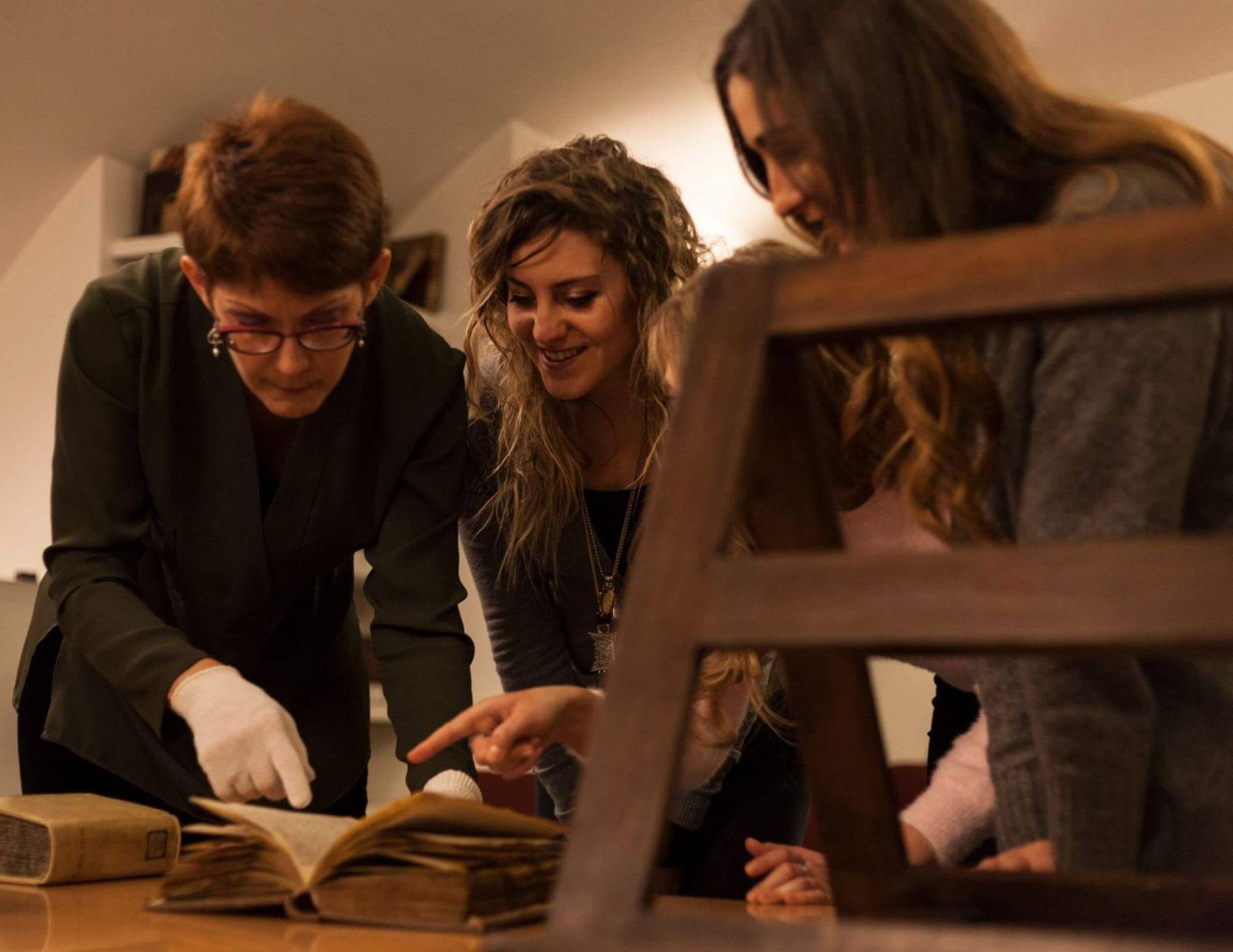

Studying Art History in Rome gives you a unique opportunity to immerse yourself in an environment rich with historical significance and cultural depth. Rome's unparalleled wealth of archaeological sites, churches, museums, and contemporary art galleries provides an exceptional backdrop for studying art and its impact over time.
John Cabot University’s Art History degree offers a robust foundation for careers in various fields, and complementing it with a minor can enhance your academic and professional journey. Here are three fascinating minors to consider.
1. Refine Your Project Management Skills With a Minor in Art and Design
Art and Design are inherently interdisciplinary, combining creative practice with theoretical and methodological approaches. This minor enhances and deepens engagement with imaginative thinking and problem-solving, which is essential for careers in international institutions, NGOs, marketing, and new media.
When you study Art History in Rome, pursuing a minor in art and design will give you crucial project development skills, from conception to execution, fostering resilience, perseverance, and a strong work ethic.
 Sharpen your artistic skills when you study art history in Rome by minoring in art and design.
Sharpen your artistic skills when you study art history in Rome by minoring in art and design.
2. Add Context When You Study Art History in Rome With a Minor in Humanistic Studies
The Humanistic Studies minor explores human cultures through literature, art, history, philosophy, and religion. It allows students to delve into the works of figures like Homer and Plato and study sacred paintings and modernist architecture. This minor enriches the Art History major by providing a broader cultural context and enhancing reading, analysis, and research.
This minor enhances the ability to communicate ideas effectively, orally and in writing, making it an excellent complement to Art History. The critical thinking and analytical skills gained are particularly beneficial for careers in business, politics, communications, and a wide range of graduate studies.
3. Deepen Your Understanding of Media With a Minor in Communications
A minor in Communications offers a blend of theory and practice, with courses in critical media studies, digital media arts, and journalism. This minor equips students with essential media literacy and analytical skills, enhancing their understanding of the relationship between media, culture, and society.
Graduates with this minor can critically assess media practices, interpret texts, and communicate effectively in various formats. These skills are indispensable for careers in media, public relations, marketing, and any field that requires strong communication abilities.
 Learn about the mechanisms of media when you study art history in Rome.
Learn about the mechanisms of media when you study art history in Rome.
Each Minor Offers Immense Career Value
Each of these minors offers distinct advantages that complement an Art History major and enhance career prospects. The Art and Design minor fosters creativity, ideal for roles in creative industries. The Humanistic Studies minor broadens cultural understanding and critical thinking abilities, preparing students for diverse fields such as business, politics, and communications. The Communications minor provides media literacy and analytical skills, essential for media, public relations, and marketing careers. Choosing a minor that aligns with your interests and career goals can significantly enrich your academic experience at our university in Italy.
Alumna Eleonora Savorelli successfully pursued work at the C+N Canepaneri Contemporary Art Gallery after graduating from the art history program in 2019. She describes her passion for her art career: “Discovering how the artists I work with and admire interpret this chaotic reality is truly one of the aspects I enjoy most in my job: meeting them is really like exploring different planets.”
She felt prepared to reach her goals after completing her degree. “Not only did JCU prepare me well academically, it helped me to improve my interpersonal skills. I learned to be more open toward others and more at ease when I have to interact with professionals,” she recalls.”
Whether you aim to become a curator, educator, or cultural officer, these minors provide the interdisciplinary knowledge and practical skills needed to succeed in the dynamic field of art history and beyond.
Are you ready to study art history at John Cabot University?
Contact us for more information!




